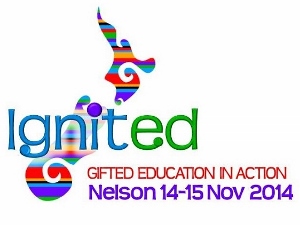

<p><img class=" alignright size-full wp-image-804" src="http://schoolnewsnz.fastrackdev.com/wp-content/uploads/2014/05/SND05-3-News-Gifted_300x225.jpg" alt="SND05-3-News-Gifted 300x225" style="margin: 5px; float: right;" width="300" height="225" />A University of Canterbury education researcher says the findings in her thesis project should help teachers and schools better support gifted students.</p>
<p> <!--more--> </p>
<p>Dr Louise Tapper&#8217;s PhD research focused on a group of teenagers to see what it meant to them to achieve in school as gifted and talented students.</p>
<p>In-depth data was collected from the students, and their parents and teachers, over a period of 18 months using multiple interviews and written reflections.</p>
<p>&#8220;Gifted students are a diverse group who have differing schooling experiences and school is not always a breeze for gifted and talented young people,&#8221; says Dr Tapper, whose thesis was supervised by Dr Jane Abbiss.</p>
<p>&#8220;The study aimed to highlight ideas that might lead to a re-think for educators around some of the ways in which they support the myriad of gifted and talented learners in New Zealand schools.</p>
<p>&#8220;By listening to the experiences of the student participants, educators and parents may gain more of an understanding of what it is like to be gifted and talented within the socio-cultural milieu of schools in Aotearoa New Zealand.</p>
<p>&#8220;There has been very little research asking New Zealand gifted and talented adolescents what it is actually like for them experiencing school.</p>
<p>&#8220;Many gifted and talented adolescents are more focused on finding out who they are as young people in their identity development and finding a fit in the social world of school, than in achieving highly in school-related areas.</p>
<p>Teachers need to understand this might mean students choose to reject <a class="wpil_keyword_link" href="https://www.schoolnews.co.nz/2015/10/developing-opportunities-at-school-with-a-view/" title="opportunities" data-wpil-keyword-link="linked" target="_blank">opportunities</a> for taking part in special programmes because of this focus on socialisation issues.</p>
<p>&#8220;There is no one stereotype of a gifted and talented student. Gifted and talented adolescents could, at any one time, fit a range of identity profiles. There have been profiles of the gifted and talented developed from overseas literature and these are often used in schools, but this study has developed profiles within a New Zealand socio-cultural framework.</p>
<p>&#8220;Four broad profiles were developed from the study. They were the Conformist identity, the Rebel identity, the Nerd identity and the All-Rounder identity. The students, parents and teachers all saw the All-Rounder identity as being the preferred one for having successful schooling experiences in New Zealand schools,&#8221; Dr Tapper says.</p>
<p>Her findings rejected the linking of the concept of potential with the phenomenon of underachievement for gifted and talented students.</p>
<p>Dr Tapper will be speaking at the national conference in gifted education at Nelson in November. She is preparing papers for national journals including the New Zealand Journal of Educational Studies and the international journal the Gifted Child Quarterly.</p>

EXCLUSIVE: Teachers used to be paid two to three times more than minimum wage workers,…
After an “overwhelming” vote to reject the latest Government offer, secondary school teachers will begin…
Second-language learning should be compulsory, says a new report from a forum bringing together academics,…
A new entitlement aimed to improve access to learning support coordinators for schools with students…
Educators have raised questions about the Ministry of Education’s new secondary school subjects, set to…
Professional learning and development (PLD) for teachers needs to be higher impact for teachers and…
This website uses cookies.